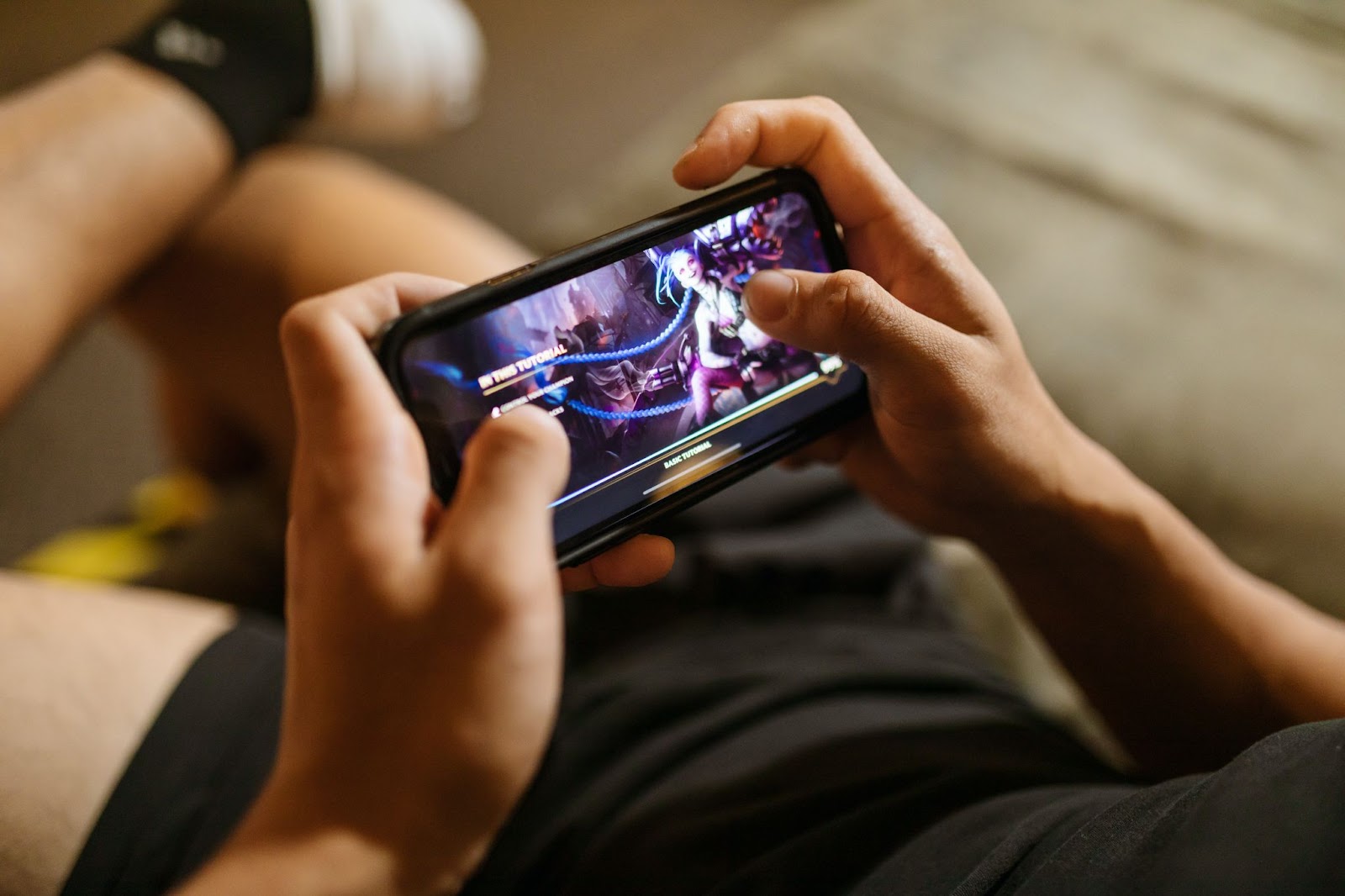
The rise of esports has been an undeniable phenomenon in the past few years, with both the video gaming industry and its players achieving unprecedented levels of success. This has led to discussions about when esports will be included in the Olympics, a milestone that could open up a number of new opportunities for gaming athletes, sponsors, and spectators. This article will discuss the potential challenges of incorporating esports into the Olympics, delving into the unique characteristics of the gaming world and the role of regulation in the international sports scene.
When Will Esports be in The Olympics
Esports, also known as electronic sports, is an umbrella term used to describe the competitive activity of playing video games at a professional or semi-professional level. Esports tournaments often consist of organized multiplayer video game competitions that involve gamers from around the world who compete in various gaming genres such as first-person shooter (FPS) games, racing games and multiplayer online battle arena (MOBA). The exact definition of esports has been a topic of debate within the sporting community over the years. Some prefer to think of esports as any kind of competitive video game that is played for either fun or money, while others argue that it should only encompass professionally organized tournaments with a concrete prize-pool and/or reward for competing. It is also important to consider that some games have only been recently introduced or developed into competitive eSport titles, such as popular collectible card games like Hearthstone and fighting games such as Tekken 7 which were originally not meant to be turned into professional Esports titles but since have been embraced by competitive gamers and professional teams alike.
Challenges of Integrating Esports Into The Olympics
Esports is quickly becoming one of the most popular sports in the world, but how will it fit into the traditional Olympic Games? Integrating esports into the Olympics has proven to be a major challenge due to the vast differences in the way traditional sports and esports are structured. This article will explore the various hurdles that must be overcome if esports is to become part of the Olympic Games.
Lack of Recognition of Esports as a Sport
The International Olympic Committee (IOC) does not currently recognize esports as an ‘official’ sport, which makes it difficult for the Olympics to consider incorporating it into the games. Even though esports has risen in popularity and is becoming more widely accepted by countries and citizens around the world, there remains a level of suspicion or misunderstanding about professional gamers and whether it can really fit into the realm of normal sports. This lack of recognition and acceptance has been a formidable barrier to making headway with establishing esports at the Olympics. This resistance is largely due to the perception that esports entails no physical activity, or that it fails to offer a sense of community, belonging or sporting values. It also faces opposition because it is traditionally considered a form of recreational gaming rather than an organized activity that should be taken seriously. Additionally, due to its complex digital nature, incorporating esports into the Olympics would require creating unified rules on intellectual property rights and how disputes are handled from matches originating from different countries with different legislation. In spite of these challenges, however, some members of the IOC recognize its potential for promoting youth engagement in sports and continue to weigh their options when considering integrating esports into their Olympic lineup. The issues facing integration are something that will need to be addressed if esports is ever going to be represented as part of Olympic events.
Lack of International Governance
One of the primary challenges of integrating esports into the Olympics is the lack of an internationally recognized governing body. Esports traditionally operates within a global market and while there are some nationalistic boundaries, there is no governing body that oversees international or Olympic teams. This makes it difficult to set regional standards and rules for competition, such as eligibility requirements and acceptance criteria for players. Furthermore, even if a governing body is established, it would need to be granted authority over other bodies already in place; some of which may not be willing to cede their power or recognition in the esports community. As such, any regulation must be carefully thought out so that all stakeholders can agree upon a unified set of guidelines suitable for competition at an international level. The lack of an internationally accepted organization to govern esports means that decision making processes are inefficient and often stalled by internal divisions between teams or organizations. Furthermore, disputes between different players can quickly spiral out of control due to a lack of clear enforcement mechanisms in place; disagreements between teams must be settled outside competitive arenas as there are no binding arbitration systems in place on a global scale. In addition, this lack of governance also means that sponsorships and promotions become complicated quickly because agreements cannot be finalized until all parts have been discussed with representatives from all parties involved in the tournament or tournament series. Finally, players’ incomes may suffer due to inconsistent pay rates between regions since they cannot depend on sponsorships or promotion deals contracted globally.
Difficulty in Establishing Rules And Regulations
Integrating esports into the Olympic Games presents a range of challenges, one of which is developing a set of rules and regulations that works for all participants. The different platforms, genres and titles in competitive gaming mean that each game could have its own sets of rules. Esports organizations such as the International e-Sports Federation (IeSF) work to establish global standards by trying to bridge regional regulations, but this is an ongoing process that introduces further complexities. In addition, there are issues surrounding the maintenance and enforcement of codes of conduct and ethical behavior among players in different parts of the world. This might include issues like drink and drug use or gambling during gaming events. Ensuring that fairness, safety and security are maintained across all esports competitions requires a level of constancy between global governing bodies that may not yet exist. Additionally, caution must be taken to ensure competitive balance in an esports environment where players can access online networks for online games, leading to concerns about boosting or “overclocking” abilities with self-programmed mods. The IeSF’s ‘Anti-Cheat Policy’ aims to deter cheating but more needs to be done from both organizers and developers when it comes to designing activities that adheres strictly to athletes being judged on their own individual merits – not with any artificial aid or interference provided by external technology sources or programs.

Potential Solutions
Esports have seen an unprecedented growth in recent years, bringing with it a discussion on whether esports should be integrated into the Olympics. If and when this integration takes place, there are a few challenges that need to be addressed. This section will discuss some potential solutions to these challenges and explore how they may be implemented.
Establishing an International Esports Governing Body
The International Olympic Committee (IOC) faces many challenges in attempting to standardize esports for potential Olympic inclusion. For starters, unlike traditional sports, there is no existing international governing body responsible for overseeing and regulating the Esports industry. As discussed by the United States Olympic & Paralympic Committee (USOPC), without an accepted international governing body, the process of integrating esports into the Olympics would be difficult to govern and manage with issues arising over jurisdiction and participation. Therefore, it is essential that an international Esports governing body is established as a priority before further steps are taken towards developing esports as a recognized sport.
An effective international governing body should have its own set of rules and regulations put in place to govern the standards for competitions across different countries and ensure player’s safety both physically and mentally throughout game events. The body should also be responsible for developing policies related to match-fixing, age limitations for competing players, online gaming platform security measures laden down list format requirements. In addition, it could implement methods such as regular screening tests conducted properly from a professional esports medical advisor/physician or public health expert to detect any potential drug use/doping among athletes which may give them an unfair advantage when competing. All these opportunities would help develop comprehensive regulations concerning various aspects of Esports while maintaining their own distinct identity with respect to culture, language etc., establishing the sporting culture expected by IOCs worldwide standards when planning global tournaments or competitions such as Olympics or major gaming events.
Establishing Rules And Regulations
When it comes to integrating esports into the Olympic Games, the IOC recognizes that they must establish clear rules and regulations in order to ensure fairness, equality and safety across all games. Currently, there is no universal set of rules that would apply to every game or tournament. Rather, each individual game or tournament will have its own unique set of rules which must be adhered to in order for the game or competition to remain fair and balanced.The IOC can work with different gaming organisations and tournament organisers to help create standardised rules that can be applied across a variety of games. This will allow players from all countries participating in tournaments or events within the Olympic Games to compete on an equal footing. The IOC also needs to establish specific standards for health and safety when it comes to competitions within the Olympics. This includes ensuring optimal playing conditions for all participants at each event and setting out protocols concerning player fatigue management, drug testing, nutrition advice etc. By establishing these standards from the outset, the IOC can ensure a safe environment for both players and spectators alike at Olympic events where esports are involved.
Creating an Esports Olympic Committee
Forming an esports committee with representatives of game creators, professional players, industry partners, and governing bodies is one solution to help navigate the complexities of setting up esports events in the Olympic Games. This committee would help aid and support the understanding, implementation and regulation of esports at the Olympic level. It should have a focus on youth outreach to promote esports in the future Olympic Games. The creation of such a committee would require significant collaboration and buy-in from all major stakeholders for ensuring consistency on a global scale. The committee could be established as an independent entity whose primary task is to ensure that any proposed changes or regulations are fair and competitively balanced across each particular title across Team Competitions (RTS, FPS), Fighting Games and Sports Simulation games based on their own competitive integrity rulesets (eSport Gameplay Ruleset) which have already been established by global competitive organizations. Furthermore, it could provide standardized guidelines which include game-specific rules regarding player eligibility criteria; tournament formats; match schedules; seeding protocols etc. The Esports Olympic Committee should also consider developing ways to protect interest in previously existing international tournaments that could potentially prohibit their inclusion in larger scale competitions. With these tasks completed this committee will be tasked with championing any changes necessary for integration with the International Olympics Committee standards such as anti-doping complaints; broadcasting & streaming regulations compatible with IOC’s partnership agreements etc while still allowing national committees to govern their own tournaments within these guidelines regionally as per usual.

Conclusion
Integrating esports into the Olympic Games is a complex issue, but one that can be solved with the right approach. Despite the various difficulties associated with bringing the two together, there are many potential benefits. As esports continues to grow in popularity and recognition, it appears that the Olympics will eventually take a stance on the subject. However, it remains to be seen when and how this will happen.




